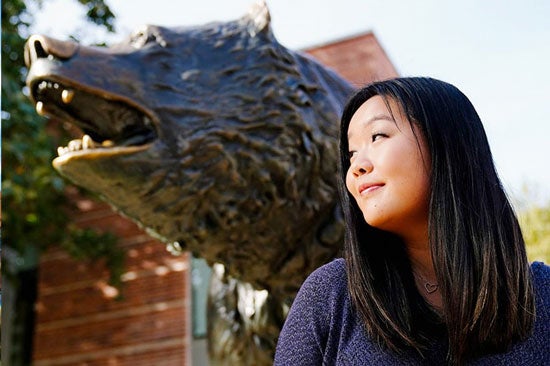
Guidance for instructors, fall 2021
[This post was updated on Sept. 23, 2021 to reflect changes to the second bullet point beneath “Attendance” — addressing students and the Center for Accessible Education.]
UCLA Academic Senate
To: All Instructors
Dear Colleagues:
Our Fall 2021 return to campus-based in-person teaching will surface many emotions, but excitement and anxiety will likely come to the fore. In-person teaching and learning are simply unequaled, and are a key component of UCLA’s excellence. The purpose of this letter is to provide practical guidance for instructors in the classroom.
To date, vaccination rates of students and campus employees are very high. Masks are extremely effective at reducing the spread of COVID-19. For the past year, the COVID-19 Response and Recovery Task Force has been advising UCLA senior leadership, and will be continuing to do so. A set of questions and answers addressing key classroom management issues (PDF), e.g. “How will I know if the students in my course are vaccinated?” is available on UCLA’s COVID-19 website. Another working group is currently finalizing Protocols for Fall 2021 Instruction to guide deans and chairs in their teaching operations.
As we prepare to return to campus, it is important to recognize there will likely be an uptick in the rate at which students will have to miss classes. All students, faculty, and staff must complete the COVID-19 symptom monitoring survey before arriving on campus each day. Students may not receive clearance from the symptom survey for a variety of public health reasons, including lack of compliance with the vaccine policy or surveillance testing, being COVID+ and ordered to quarantine, or being required to isolate due to recent COVID+ exposure. Due to rules about health privacy, instructors will not have direct knowledge about whether students in their class have tested positive for COVID, or whether or not the students are vaccinated. However, all instructors will have access to a class dashboard that will indicate which students are cleared to come to campus that day.
In order to best support our entire community, we encourage instructors to adopt one or more of the following approaches to accommodate students who are unable to attend class in-person because they have not been cleared to be on campus by the symptom-monitoring survey and/or are actively isolating or quarantining per campus and Los Angeles County Department of Public Health (LACDPH) guidance.
The following guidelines provide options for accommodating student absences. Absences related to COVID can be thought about as those due to other medical situations, but are likely to be much more frequent, and additional guidance may apply. LACDPH has recommended (PDF) that campuses provide opportunities for isolated/quarantined students to participate in remote learning and that access to academic support services be maintained.
Class recordings
- We strongly encourage all instructors to record lectures (video or audio). If you choose to record, you may also choose to only make those recordings available for students who miss class because they are not cleared to come to campus that day, or you may post them in the learning management system (CCLE or Canvas) for all students in your class. Note: The UCLA Student Conduct Code (Section 102.23) prohibits the use, sale or copying for commercial purposes of class recordings without the written consent of the instructor.
- Instructors may choose to broadcast lectures via Zoom to students who are unable to attend class because they are not cleared to be on campus.
- If an instructor is broadcasting lectures via Zoom, they should turn on real-time automatic captions. Captions during live lectures support many different types of learners, and are a universally designed method to increase access for all students.
You can determine what equipment is available in your classroom to accommodate recording and streaming on the UCLA Center for the Advancement of Teaching (CAT) website.
If your classroom is not equipped for recording or streaming, please consult with CAT for options using individual equipment.
Attendance
- If a student has a public health risk mitigation reason for missing class, the student’s absence should not factor in any way into an attendance component of the student’s final course grade.
- A “public health risk mitigation reason“ includes a symptom monitoring instruction to remain off campus, a student’s compliance with isolation orders for potential COVID+ exposure, or quarantine orders resulting from a positive COVID test.
- If an instructor factors class participation into a student’s final grade, the instructor should give students who miss in-person instruction for a public health risk mitigation reason an alternative way to make up for lost participation opportunities.
- A student who is sick with COVID-19 might qualify as being temporarily disabled and be eligible to receive some support from the Center for Accessible Education (CAE) following an interactive process with the instructor. However, if the student is simply a close contact of an infected person or is isolating or quarantining without disabling symptoms, they likely would not qualify. Please note that instructors who factor class participation into a student’s final grade are responsible for monitoring attendance in their classes.
Assessments
- If a student has a public health risk mitigation reason for missing an assessment (midterm, final, presentation, etc.) the student should be given an opportunity to make up the assessment once they are cleared to return to campus.
- As above, a “public health risk mitigation reason” includes a symptom monitoring instruction to remain off campus, a student’s compliance with isolation orders for potential COVID+ exposure, or quarantine orders resulting from a positive COVID test.
- As above, a student with a public health risk mitigation reason for missing an assessment must inform the instructor as promptly as possible, even though they will be indicated as not being cleared on the class dashboard.
- In consideration of the possibility that campus leadership might decide to shift the campus to remote instruction, it would be prudent to design class assessments ahead of time that are easy to transfer to the remote environment.
- Likewise, it would be prudent to design class assessments ahead of time that would be easy to apply to students who were absent.
Possible Shifts in Instructional Modality
Existence of some COVID+ cases in our community will not automatically mean a shift to remote education, either across our educational program or in the specific class or classes in which they occur. Given the University’s commitment to in-person instruction, instructors are not permitted to unilaterally move their classes to remote without prior permission of the administration and/or at the direction UCLA’s Exposure Management Team. As mentioned above, separate guidance is being provided to deans and chairs about shifting an individual class to remote instruction. Any general change in instructional modality would flow from advice provided by the CRRTF to senior campus leadership. It is important to note that asking faculty members to teach a single course in multiple or ‘dual’ modes is neither reasonable, nor good for teaching or learning. Likewise, accommodations for students who are unable to attend due to disability, or for public health risk mitigation reasons, must not impose unreasonable burdens on faculty; sufficient resources would need to be provided. A list of teaching resources, covering a variety of different teaching scenarios, has been compiled by the Cross-Campus Teaching Innovations Group.
Sincerely,
Shane White
Chair
UCLA Academic Senate
Andrea Kasko
Chair, Graduate Council
UCLA Academic Senate
Megan McEvoy
Chair, Undergraduate Council
UCLA Academic Senate


